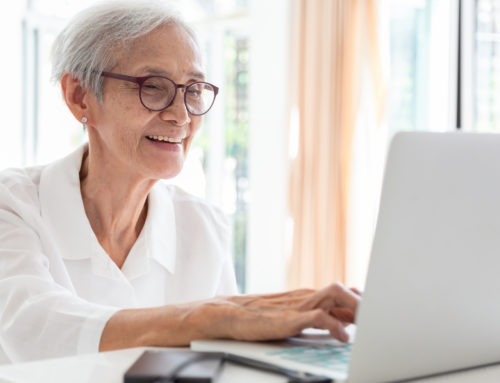Turning an issue into an opportunity. Self-isolating with just your partner may seem daunting, but experts say it could be a win for your relationship.
Article I consulted on FaceTime, comedy and space: How to save your relationship in quarantine by Penny Burfitt

The thought of spending two weeks in isolation or locked in your home with a significant other tends to have one of two effects on couples.
Either, they experience a starry-eyed reflection of all the quality time they could bask in for fourteen days creating a positive relationship opportunity, or a sense of impending doom at the prospect of bouncing off the walls and colliding with one another.
Add to the mix a healthy dose of coronavirus anxiety, and you have a tricky situation to muddle through.
As international arrivals are forced to self-quarantine, and cases across the nation continue to rise, it’s a situation many could find themselves in sooner rather than later.
Two relationship experts, however, say self-isolation with your partner doesn’t need to be a relationship death sentence. In fact, if done right, the time could be a great opportunity to strengthen your bond.
From establishing space boundaries, embarking on new ventures together, and picking the right TV series to binge-watch, here is what the experts prescribe for a couple stuck in coronavirus isolation.
Communicate from the outset
Sharing your feelings is paramount if you find yourself in lockdown.

We all have different reactions to global pandemics, and where one half of a couple may be stewing in anxiety, the other may be unaffected, and even flippantly unbothered by strict hygiene precautions.
LifestyleDr Karen Phillip is a Counselling Psychotherapist and relationship expert, and she says working out where each of you is at mentally and emotionally should be the first step you take.
“The most important thing is to recognise that everybody is going to behave differently,” she tells Yahoo Lifestyle. She says when discussing feelings, facts are your friend.
“If it’s all doom and gloom end of the world, then pull up some information from the Department of Health to allay their fears,” she says.
“If they’re a bit slack [about precautions] then again, pull up the information and highly recommend that you both do the right thing, not only to protect yourself but the other person.”
Organise a game plan if isolated together
Establishing clear plan from the beginning will set you up for success.

Renee Brown is a matchmaker. She recommends couples sit down and map out a solid plan of attack for their isolation period.
“Identifying and communicating the scenario together at the beginning is obviously first and foremost,” she says. “Then it’s about acknowledging that this is going to be really tough, we’re in each others space and we need a strategy.”
She says nailing the right strategy is the most important step you can take, and can even make the experience a positive one. “Put a plan in place that you’re both really comfortable with and almost excited about,” she says. “Being part of each others strategy is the best way to handle the situation.”
Set up individual space
Having your own space will help minimise conflict.

Physical isolation means managing space is one of the most important steps a couple can take to minimise conflict.
Dr Phillip says if both are working from home, giving each other space to concentrate on work is key to maintaining a sense of structure.
“Go in a separate room and separate areas and concentrate on your work,” she advises.
She also suggests trying to include a level of flexibility. “We need to give and take, it’s a real big give and take time,” she says of the intense one-on-one time with a partner.
If you are working and your partner is not, she suggests trying to take some time for them. Instead of working eight hours straight, for example, take a few hours as a break and do something with them, and slot the extra time in later.
Renee agrees, saying it’s important to recognise that you will inevitably frustrate each other and it’s, therefore, vital to set up a dedicated area for alone time, particularly if you share a small space.
For small apartments, this could be the bedroom or balcony and in larger homes the living area or garden.
“When one of us gets to that point and needs a tap out, there’s is a section set up in the house for you to go into your little space and have some private time,” she says, adding that the other should agree not to bother the other person when they are in that space.
Reach out to family and friends when isolated
You may be isolated, but you should not be an island.
Both experts agree that reaching out and leaning on others is vital to maintain harmony in your relationship.
Dr Phillip recommends regularly chatting with family and friends using the technology we all have at our fingertips.
“I suggest you keep in contact with family and friends via WhatsApp, Skype, Facebook whatever [you have],” she says.
“Video calls are much better than just typing messages, and also better than telephone calls.”
Communicating with friends and family over video chats can take the pressure off.

Renee also recommends using online psychologists and counsellors if you are feeling strained or concerned.
“There’s always outside support from people who know more than you, that can always give you advice to help you with your current scenario,” she says, pointing to resources like Psychology Today, where couples can chat with a counsellor online.
Keep downtime uplifting
Expanding your activities is a great way to stay motivated. Above all, keeping your downtime light is a vital piece of your self-isolation puzzle.
When deciding what series to binge-watch, Dr Phillip recommends avoiding particular programs.
“I suggest couple’s stay away from reality TV shows completely because they’re always high conflict and high drama,” she says. “We don’t need that right now. Watch a comedy or get out some board games and play them.”
Renee agrees, saying couples should try and include as much fun as possible in their schedules. “Movies music and exercise and nutrition should be incorporated in your coping mechanism to keep you active and feeling good,” she says.
Take advantage of the situation by trying something new
“Do things you wouldn’t normally do, and normally wouldn’t have the time to do,” Dr Phillip urges.
“[That way] we feel that we have a purpose. That we are restricted for two weeks, but that we can use those to weeks to our advantage.”
Renee says turning nutrition into something exciting is a great way to keep things interesting.
“If you’re with your significant other play around with different recipes,” she says. “That’s really creative and will help you connect and do something together.”
Dr Phillip says the sky is the limit and recommends you embark on any and every curiosity you haven’t had the time to explore.
“Just play games, play cards, play strip poker if you’re so inclined,” she says.
“Anything at all like that to keep things fun. Put on some music and do the craziest dance you can learn”
Consider the positives
Getting through a challenge can be a great way for couples to bond.
Dr Phillip points out that in similar isolation situations in recent times, following natural disasters, for example, there is often a spike in divorce, but an even larger spike in marriages and births.
In other words, being aware that the situation can have really positive effects on your relationship is a great way to approach it.
Images used by Getty Images.






